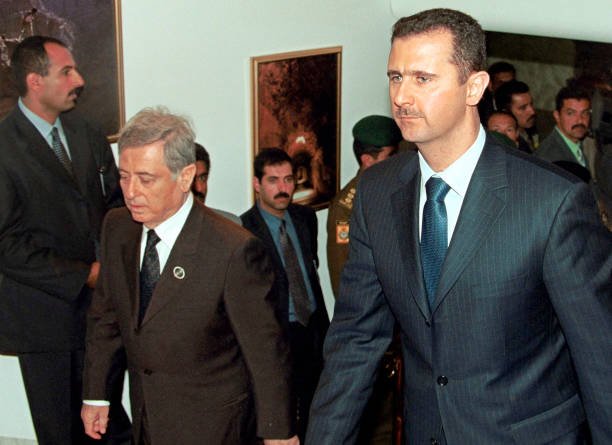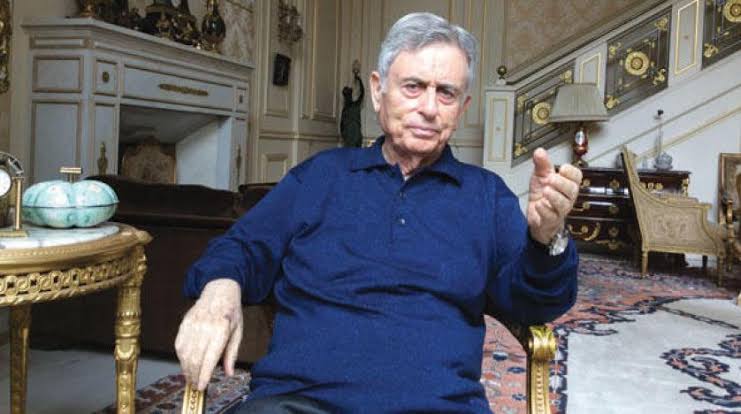Since its inception in the 1940s, the Arab Socialist Baath Party has been a pioneer in the struggle for the causes of the Arab nation, particularly the question of Palestine and the national liberation movements in the Arab countries that were still under foreign rule, as well as against the projects of alliances and foreign domination. The Baath Party has also played a pioneering role in defending public and individual freedoms and has been instrumental in countering and overthrowing military governments while defending democracy.
The party had two opportunities to assume power. The first came after the fall of the Shishakli regime, where Baathist officers played a significant role in its overthrow. The party leadership chose the democratic path. The second opportunity arose during the rebellion of the Qatana units in 1957. Baathist officers in various military areas rebelled against a decision to transfer and replace several progressive officers, including Baathist officers. This decision resulted from collusion between the army commander and some politicians. The party leadership aimed to address the problem and rejected the request of most Baathist officers to receive the verdict.
During that stage, Syria faced severe external pressure. The party’s leadership worked to establish a broad national alliance and contributed to a government that included all parties, with Mr. Sabri Al-Asali at the helm.
At that time, the Baathists were strong advocates of their principles, fighting for the rights of workers, farmers, and low-income earners. They maintained their integrity and ensured that their actions were in line with their principles, thereby gaining the trust of the masses.
The first major mistake committed by the party’s leadership was the agreement made by the military delegation with President Gamal Abdel Nasser to establish unity between the two countries without thoroughly discussing the project. This agreement did not guarantee the continuity of unity and led to the acceptance of an individual regime, consolidating all powers in the hands of the President of the Republic. As a result, democratic life in Syria came to an end, and the existing political and security system in Egypt was extended to Syria without considering the political and economic situation in Syria.
The second significant error made by the party leadership was its acceptance of participation in power, encompassing the involvement of the military committee in the March 8 movement in 1963, followed by the liquidation of the forces involved in that movement and the subsequent assumption of control.
During that time, the party leadership failed to recognize that seizing power through force would result in internal conflicts within the party, each vying for power under different slogans. In fact, these conflicts emerged within the party in the early months and eventually led to a profound and widespread split.
The party leadership did not give sufficient consideration to the issue of the party’s weakened structure following the divisions during the separation phase and the departure of three parties from Syria: the Arab Socialists Movement, the Nasserite Unionist Movement, and the National leader committee Organization. These divisions not only weakened the Baath Party but also weakened the country itself. As a consequence of this weakness, the idea of revolutionary change gained momentum in the Third National Congress. Consequently, the party strayed from its fundamental principles regarding freedom and democracy.
The party failed to take into account the political, economic, and social conditions in the country, nor did it consider the implications of the Arab-Israeli conflict. Internal concerns had negative repercussions on various aspects of life in the country.
The most alarming development was the isolation of President Hafez al-Assad in power and the enshrinement of this position in the Constitution under the party’s rhetoric of being the leader of society and the state.
During this stage, the role of the party became marginal. Its leadership awaited the guidance of the National leader committee Organization President and Secretary of State. Other parties that had formed alliances with the Baath Party in the National Front were also affected by the same issues that weakened the Baath Party, resulting in further divisions. Moreover, the concentration of exclusive authority marginalized the role of constitutional institutions, not only by granting legislative powers solely to the President of the Republic according to the Constitution but also through the formation of the People’s Assembly via manipulated elections.
The new regime produced two grave problems: the country’s weakness and the suffering of its people. Repression and the expansion of the security services’ role became the backbone of the regime under the emergency law, effectively turning Syria into a large prison. The second issue was corruption. The corruption, which started with the president’s relatives and those surrounding them, was not an isolated incident. It was a deliberate policy aimed at consolidating the revolution within the hands of the family and its associates, while impoverishing the people to the extent where their struggle for basic sustenance became more pressing than working towards progress, development, and supporting the liberation of Syrian occupied lands and the Palestinian people.
The implementation of a policy of isolation, discrimination, and exclusion has resulted in two significant issues that have weakened national unity.
The first issue is the severe sectarian tension that Syria has experienced since the early 20th century. Syrians have collectively struggled to achieve their national independence. Sectarianism poses a serious threat to the country’s reality, security, and future.
The second issue pertains to the adoption of a policy of isolation, exclusion, and discrimination against Syrian Kurdish citizens. This policy has led to the emergence of a movement among the Kurdish population, influenced by regime practices and current developments in Iraq. They are calling for the establishment of a special situation that enables Kurds to exercise their political and cultural rights, along with their right to self-governance and determination of their destiny.
Economic policies and corrupt practices have resulted in a significant decline in the national economy, despite receiving substantial Arab aid. In 1981, the Syrian currency experienced a dramatic and rapid collapse. The value of the dollar exceeded 50 Syrian pounds, compared to the previous rate of four pounds per dollar. This collapse led to a sharp increase in prices, loss of goods, and significant financial losses for Syrian savers.
These conditions, created by the regime’s practices and policies, have led to underdevelopment, a loss of initiative, heightened fear among citizens, increased poverty, widespread unemployment, and the emergence of unknown crimes in Syria.
The regime in Syria has transitioned from a republican system to an individual system and eventually to a family system. The state has become an entity owned by the president’s family, who control the country’s wealth, security, and stability. The state’s presence in public affairs has diminished, and power centers within the family have become the reference for the entire country. While Syrians suffer from fear, poverty, and high prices, the corrupt segment of society enjoys significant privileges.
To our fellow citizens,
As a group of Baathists who have held power at different stages, we have thoroughly discussed the alarming situation that our country has reached. We have come to the following conclusions:
Firstly, the party’s leaders made a serious mistake by straying from the party’s fundamental principles, which considered freedom sacred and as a prerequisite for individual and societal advancement, as well as protecting the country.
Secondly, we believe that democracy is the best system to enable the Syrian people to progress, liberate their occupied lands, and fulfill their national responsibilities. The path to achieving this is by constructing a democratic civil state, where all citizens have equal rights and responsibilities regardless of religion, sect, race, or gender. It should be a state governed by institutions that respect the rule of law, uphold justice, promote equal opportunities, and work towards the advancement and progress of Arabs.
Thirdly, we appeal to Baath Party members in Syria to understand the extent of damage the regime has inflicted upon the party, its principles, the people, and the country. The current situation in Syria is a collective responsibility. The overwhelming majority of you have no role in the vices committed in your name. People’s dignity and freedoms are violated under the guise of freedom, and individuals suffer from hunger under the pretext of socialism, while national unity is undermined in the name of unity.
We also call upon citizens in Syria to uphold and preserve national unity, break the barriers of fear, and stand together in solidarity to achieve national change in Syria. Let us work towards building a democratic state where religion is dedicated to God and the homeland belongs to all.



